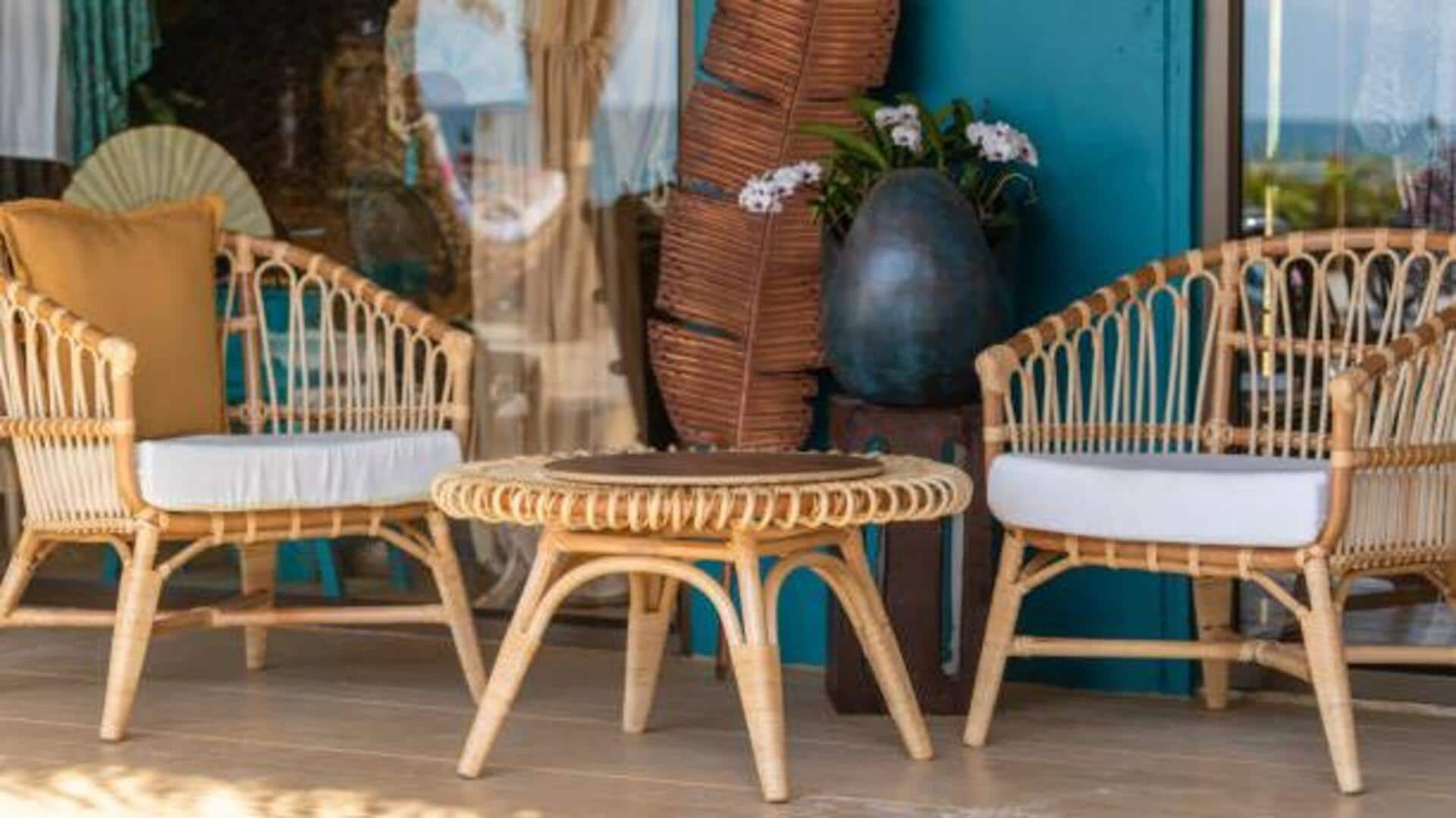
Cane furniture: A sustainable home decor choice
What's the story
African-style furniture is taking the world by storm, thanks to its unique designs and cultural significance. Using sustainable cane materials, these pieces are a perfect eco-friendly option for anyone keen on furnishing their homes affordably. From being a versatile material that can be crafted into diverse furniture styles, cane stands the test of durability and aesthetic appeal. Here are insights into affordable African-style furniture using sustainable cane materials.
#1
Benefits of cane material in furniture
Since cane is a renewable resource that grows quickly, it is an eco-friendly option for furniture production. It also needs minimal processing than other materials, which lowers the carbon footprint of manufacturing. Further, cane's lightweight nature makes it easier to transport and work with during the crafting process. These factors lead to lower production costs, making high-quality African-style furniture available at more affordable prices.
#2
Versatility of design options
Cane's flexibility gives artisans the ability to create a wide range of designs that suit different tastes and preferences. From intricate weaves to simple patterns, cane can be shaped into various forms without compromising strength or stability. This versatility allows for the creation of diverse African-style pieces such as chairs, tables, and decorative items that fit seamlessly into any home decor theme while remaining affordable.
#3
Durability and longevity of cane furniture
Despite being lightweight, cane is extremely durable if treated and maintained properly. It doesn't wear out over time, thanks to its natural resistance to elements like humidity and temperature changes. This durability means that your African-style furniture made from cane will be functional and aesthetically pleasing for years without having to replace or repair them often.
#4
Supporting local artisanship economies
Buying African-style furniture made from sustainable cane helps local artisans who depend on traditional crafting techniques passed down through generations. By choosing these products instead of mass-produced ones, you help skilled craftsmen in Africa directly and contribute to efforts to preserve cultural heritage in their communities- all at competitive prices worldwide.